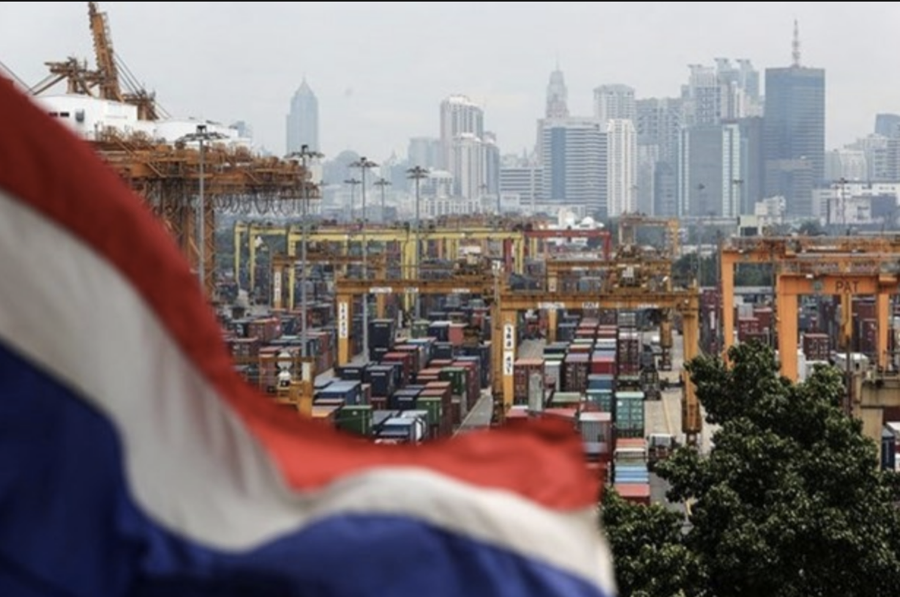Thailand’s Economy Set to Soar in 2024
Thailand’s Economic Growth Outlook
The World Bank has projected a promising future for Thailand’s economy in 2024, with a forecasted growth rate of 3.2%. This marks an improvement from the 2.5% growth rate experienced in the current year. The upswing can be attributed to the resurgence of the tourism sector, a boost in goods exports, and steady private consumption, as outlined in the latest Thailand Economic Monitor.
Challenges Faced in 2023
In 2023, Thailand experienced a slight dip in economic growth due to a decrease in goods exports and ongoing fiscal adjustments. However, the growth rate is expected to stabilize around 3.1% in 2025.
Inflation Rates and Price Trends
Inflation rates are anticipated to decline to 1.1% in 2024, primarily driven by lower energy costs. However, there is a likelihood of a rise in food prices.
The Impact of Thailand’s Digital Wallet Initiative
The introduction of a digital wallet initiative in Thailand, which accounts for approximately 2.7% of the nation’s GDP, has the potential to further accelerate economic growth by 0.5 to 1 percentage points over the period of 2024-2025. However, this initiative may also increase the fiscal deficit to 4-5% of GDP and push public debt to 65-66% of GDP.
Risks and Challenges
There are several risks and challenges that could impact Thailand’s economic forecast. Potential geopolitical conflicts and high oil prices could trigger another inflationary wave due to the country’s reliance on energy imports. To address this, Thailand is considering transitioning to a low-carbon economy to enhance energy security, reduce environmental harm, and establish itself as a leader in sustainable growth.
Thailand’s Approach to Carbon Pricing
The importance of carbon pricing, such as carbon taxes or emissions trading, is emphasized in a recent report as a means to achieve significant reductions in greenhouse gas emissions. While carbon pricing is crucial, additional measures may be necessary to effectively reduce emissions.
Thailand has set ambitious goals to reach net-zero emissions by 2065 and reduce emissions by 30% by 2030. The revision of Thailand’s Climate Change Act in 2024 is expected to include carbon pricing as a key policy tool to achieve these targets.
Addressing Air Pollution and its Impact
Air pollution is a significant economic and health concern in Thailand. Implementing carbon pricing measures could improve urban air quality and reduce illness-related costs, which accounted for approximately 6% of Thailand’s GDP in 2019.
The revenue generated from carbon pricing could support various climate policies or public expenditures, potentially alleviating the financial burden on Thailand’s predominantly publicly funded healthcare system.
Thailand’s Progress in Carbon Pricing
Thailand has taken initial steps towards comprehensive carbon pricing, including the implementation of voluntary emissions trading since 2015. However, to meet its environmental targets, the country will need to adopt more ambitious policies.
Conclusion
Thailand’s economy is poised for an uplift in 2024, with a projected growth rate of 3.2%. The resurgence of the tourism sector, increased goods exports, and steady private consumption are key factors contributing to this positive outlook. However, challenges such as potential geopolitical conflicts and high oil prices need to be addressed. Transitioning to a low-carbon economy and implementing carbon pricing measures are seen as strategic moves to enhance energy security, reduce environmental harm, and establish Thailand as a leader in sustainable growth.
Frequently Asked Questions
1. What is the projected growth rate for Thailand’s economy in 2024?
The projected growth rate for Thailand’s economy in 2024 is 3.2%.
2. What factors contribute to Thailand’s economic uplift in 2024?
The resurgence of the tourism sector, increased goods exports, and steady private consumption contribute to Thailand’s economic uplift in 2024.
3. What are the risks to Thailand’s economic forecast?
Potential geopolitical conflicts and high oil prices are risks that could impact Thailand’s economic forecast.
4. How does Thailand plan to address air pollution?
Thailand plans to address air pollution by implementing carbon pricing measures, which could improve urban air quality and reduce illness-related costs.
5. What are Thailand’s environmental targets?
Thailand aims to reach net-zero emissions by 2065 and reduce emissions by 30% by 2030.







